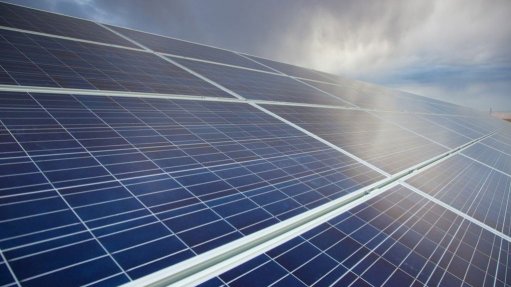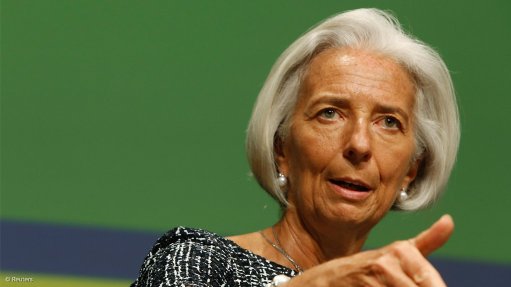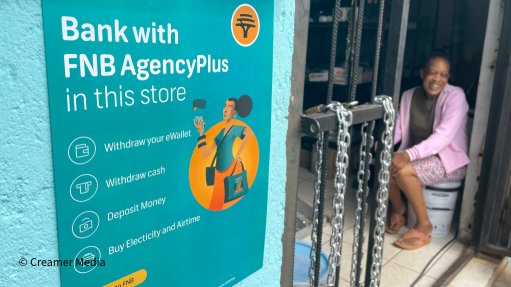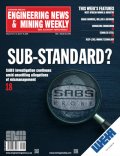TymeBank SME Forecast April 2025
This article has been supplied and will be available for a limited time only on this website.
The tough decisions tabled by Finance Minister Enoch Godongwana’s second stab at the National Budget Speech in Parliament on 12 March, reflected a constrained National Treasury and many urgent, competing priorities.
While the Minister made it clear that the budget’s focus would continue to prioritise those living on social grants and public-sector employees, SMEs did receive some attention. The Department of Small Business Development allocated R2.1 billion over the medium term to support about 120 000 competitive small businesses, particularly those owned by women, youth and persons with disabilities in townships and rural regions.
Additionally, government allocated R313.7 million to the establishment of SMME hubs to support business expansion, while the R1-trillion allocated to infrastructure will be a positive for SMEs due to its impact on the infrastructure supply chain, and because all businesses will benefit from investment in roads, water management and railways. And there was a significant 51% reduction in the cost of a 1.5 gigabyte data bundle, which is good news for small businesses and individuals. Let’s hope that all these commitments remain intact when the budget finally makes it through the legislative process.
In the meantime, Miguel da Silva, Group Executive: Business Banking at TymeBank, takes a closer look at what will affect SMEs most in April and beyond.
Transformation Fund proposed
President Ramaphosa, in his 2025 State of the Nation Address on 6 February, announced the much-discussed R100-billion Transformation Fund. The aim: over the next five years, black-owned small businesses will be able to access financial support through this fund, which is expected to be largely financed by the private sector. The reality: there are significant, valid concerns raised about this proposed fund. There is heavy critique that the fund is mainly focussed on the contributions from big business rather than the desired outcomes, which leads to worries about it being yet another fund ripe for looting.
The Minister of Trade, Industry and Competition, Mr Parks Tau, published the Draft Transformation Fund concept document on 19 March, with a deadline for public commentary of 7 May. We encourage members of the public and interested parties to send their inputs to transformationfund@thedtic.gov.za. Let the tussles commence.
While fuel prices are down, load-shedding returns and VAT increase looms
The latest fuel price decrease is good news for SMEs that rely on vehicles for deliveries and logistics. Effective 2 April, the price of 95 unleaded petrol decreased by 72c/l and 93 unleaded petrol decreased by 58c/l, while diesel prices dropped by between 84c and 86c/l.
Unfortunately, after months of no load-shedding, the dreaded power outages have returned. To add insult to injury, as of 1 April, Eskom direct customers are now paying an extra 12.7% – well above the inflation rate – while municipal customers will see prices go up by at least 11.32% from 1 July.
The impact of these cost increases on SMEs will be substantial. Businesses may try and absorb them initially but will eventually need to either up their prices or find innovative ways to reduce them. It’s clear that exploring energy alternatives is not just a matter of ensuring stable supply – renewables in particular look more and more appealing from a cost-saving perspective as grid electricity continues to get more expensive.
SMEs will take another knock when the 0.5% VAT hike tabled for 1 May 2025 comes into effect. The proposed 2025 increase, which at this stage can only be stopped by a legislative intervention, will take VAT up to 15.5%. Unless an SME is VAT registered and works only with other businesses that are VAT registered, they will have to pay more for their supplies. Consumers will have to shoulder the burden of the higher tax, although government is planning on expanding the basket of zero-VAT-rated food items, among other measures.
The SARB firm on the repo rate – for now
At least it did not go up! But by holding the repo rate firm at 7.5% on 30 March, the South African Reserve Bank has ensured there will be no relief for those who use credit. This decision makes the prime lending rate 11%. The SARB cited rising inflation risks, global economic uncertainty, and the effect of fiscal policy changes as reasons for its cautious approach. What is certain is that continued high rates will keep the screws on households and SMEs alike.
Spaza shops face onerous registration effort
According to research by Trade Intelligence, there are approximately 150,000 spaza shop owners across the country, collectively valued at around R197 billion in 2023. Recently government has sought to make shop owners register their businesses to ensure better safety, compliance and regulation.
The registration is onerous to say the least. Shop owners need to assemble a mass of supporting documents, and the process is laborious and expensive.
Tens of thousands of spaza shops have already been found non-compliant, and hundreds have been closed. Consider the effects on a sector estimated by the 2021 South African Township Marketing Report to employ 2.6 million people and contribute 5.6% to GDP if these closures continue.
April’s SME environment is anything but a joke. While government departments profess their desire to help SMEs, we must still contend with regulations, red tape and a repo rate that keeps SMEs and citizens from gaining even the slightest financial relief. Add in the depressive effects of a looming VAT hike and turning our sluggish GDP growth around becomes a really tall order.
Comments
Press Office
Announcements
What's On
Subscribe to improve your user experience...
Option 1 (equivalent of R125 a month):
Receive a weekly copy of Creamer Media's Engineering News & Mining Weekly magazine
(print copy for those in South Africa and e-magazine for those outside of South Africa)
Receive daily email newsletters
Access to full search results
Access archive of magazine back copies
Access to Projects in Progress
Access to ONE Research Report of your choice in PDF format
Option 2 (equivalent of R375 a month):
All benefits from Option 1
PLUS
Access to Creamer Media's Research Channel Africa for ALL Research Reports, in PDF format, on various industrial and mining sectors
including Electricity; Water; Energy Transition; Hydrogen; Roads, Rail and Ports; Coal; Gold; Platinum; Battery Metals; etc.
Already a subscriber?
Forgotten your password?
Receive weekly copy of Creamer Media's Engineering News & Mining Weekly magazine (print copy for those in South Africa and e-magazine for those outside of South Africa)
➕
Recieve daily email newsletters
➕
Access to full search results
➕
Access archive of magazine back copies
➕
Access to Projects in Progress
➕
Access to ONE Research Report of your choice in PDF format
RESEARCH CHANNEL AFRICA
R4500 (equivalent of R375 a month)
SUBSCRIBEAll benefits from Option 1
➕
Access to Creamer Media's Research Channel Africa for ALL Research Reports on various industrial and mining sectors, in PDF format, including on:
Electricity
➕
Water
➕
Energy Transition
➕
Hydrogen
➕
Roads, Rail and Ports
➕
Coal
➕
Gold
➕
Platinum
➕
Battery Metals
➕
etc.
Receive all benefits from Option 1 or Option 2 delivered to numerous people at your company
➕
Multiple User names and Passwords for simultaneous log-ins
➕
Intranet integration access to all in your organisation





















